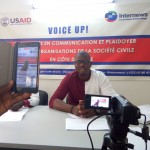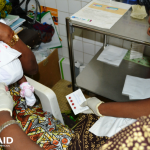Speeches Shim

However, Aboigny is wheelchair-bound and few buses are equipped with features that enable people with disabilities to board, such as lifts or ramps. The few buses that are wheelchair-accessible rarely stop for him or allow him to board during rush hour. Neither do taxis.
In 2010, Nicolas Vako, 55, returned to his hometown of Abidjan, Côte d’Ivoire, after working 20 years for the International Committee of the Red Cross and traveling all over Africa and Eastern Europe. He decided to set up a crab restaurant, a specialty from his wife’s village.

Growing up in farming families in northern Côte d’Ivoire, childhood friends Coulibaly Zana Sina and Justin Ake Koffi remember when cashew trees were worth so little that they used them to fence their fields growing more profitable crops like mango and maize.
While scouting locations for his new apparel factory, Aka Phillippe Kouame settled on Abobo, an Abidjan neighborhood that had been ravaged during Côte d’Ivoire’s civil war, for reasons that might have caused others to reject it. Unemployment was high there, and banditry and robbery were on the rise.

On March 9, Adèle*, 39, and her 6-week-old baby come to Abobo General Hospital, located in the north of Abidjan, Côte d’Ivoire’s capital city, for a postnatal care checkup. Dried blood spots are collected from the baby’s heel for an HIV PCR (polymerase chain reaction) test, a routine test for all babies born to HIV-positive mothers. The test ensures early diagnosis of HIV infection to improve the survival and quality of life of HIV-exposed babies.


Comment
Make a general inquiry or suggest an improvement.